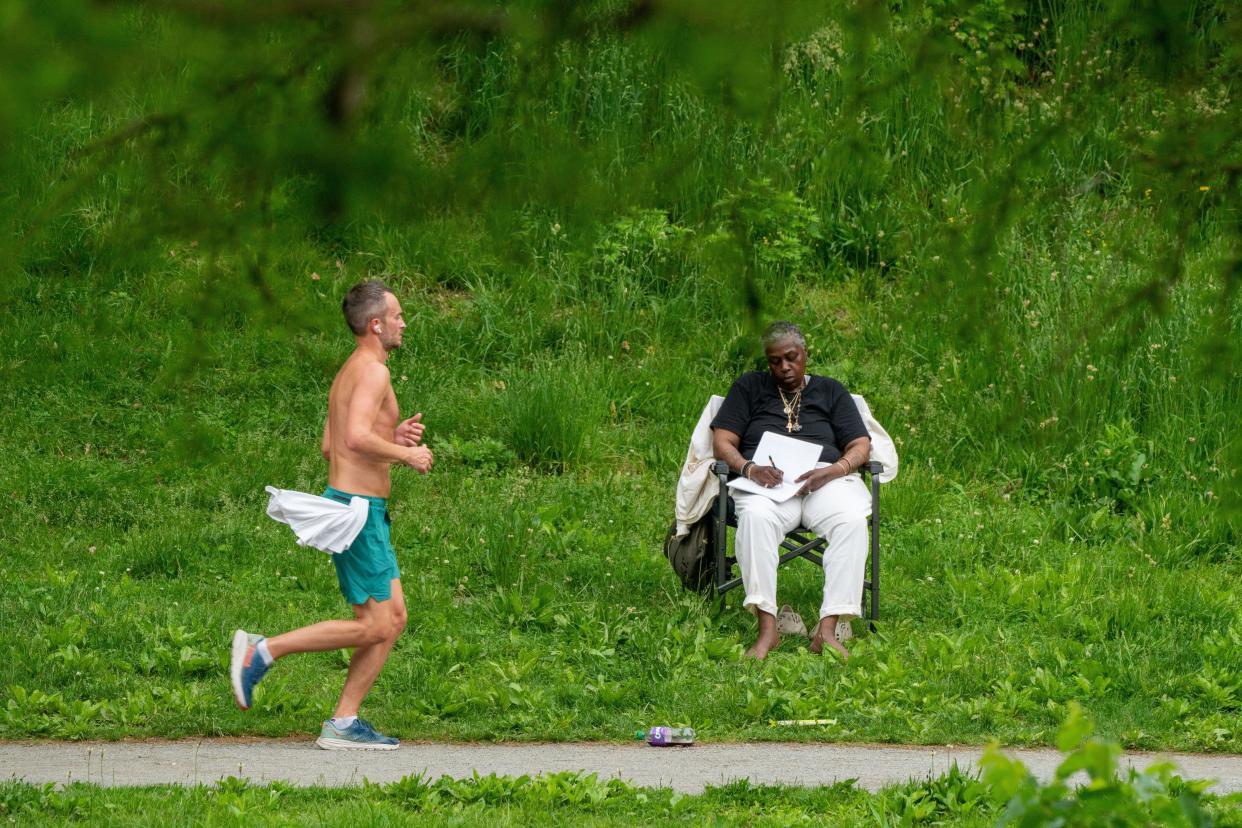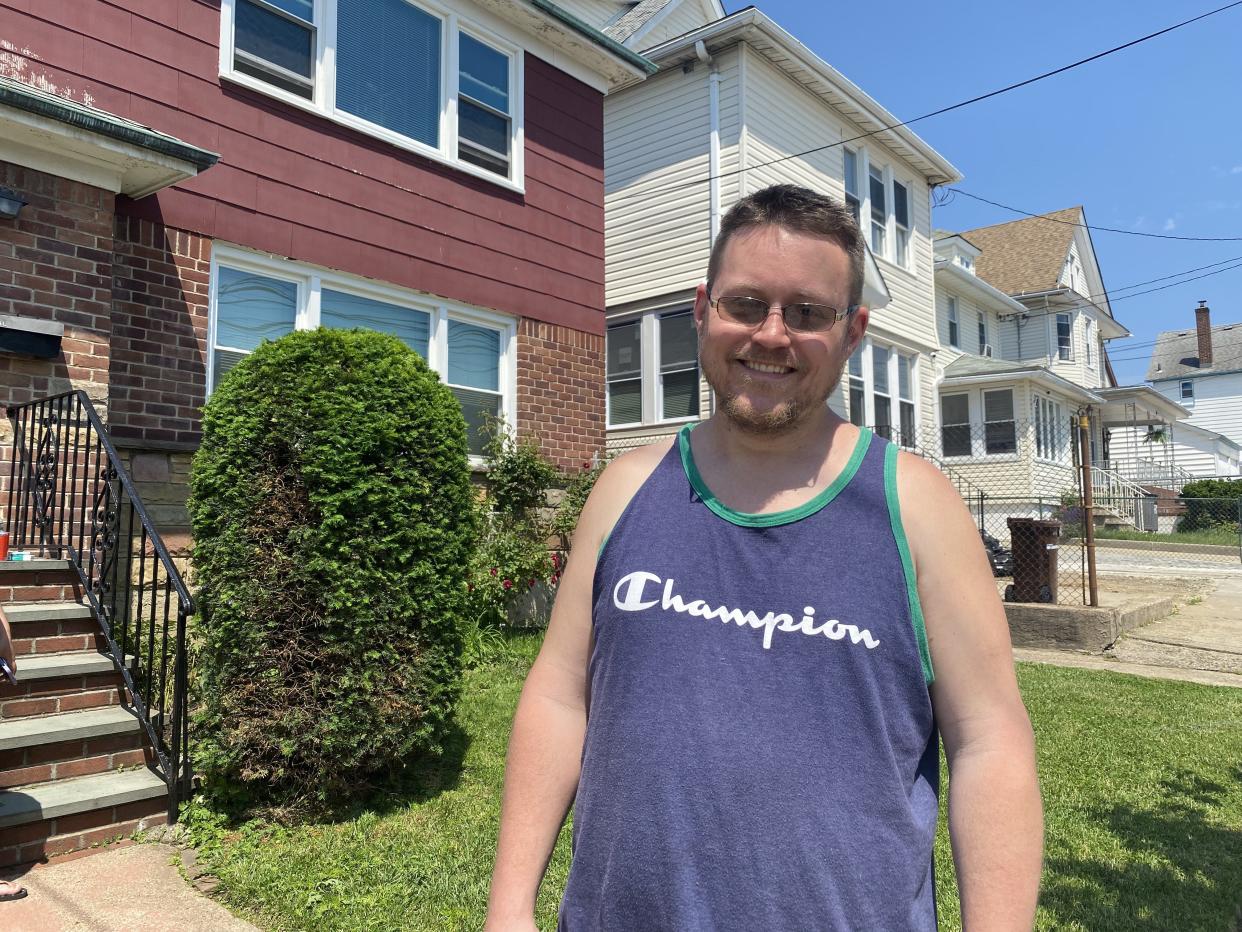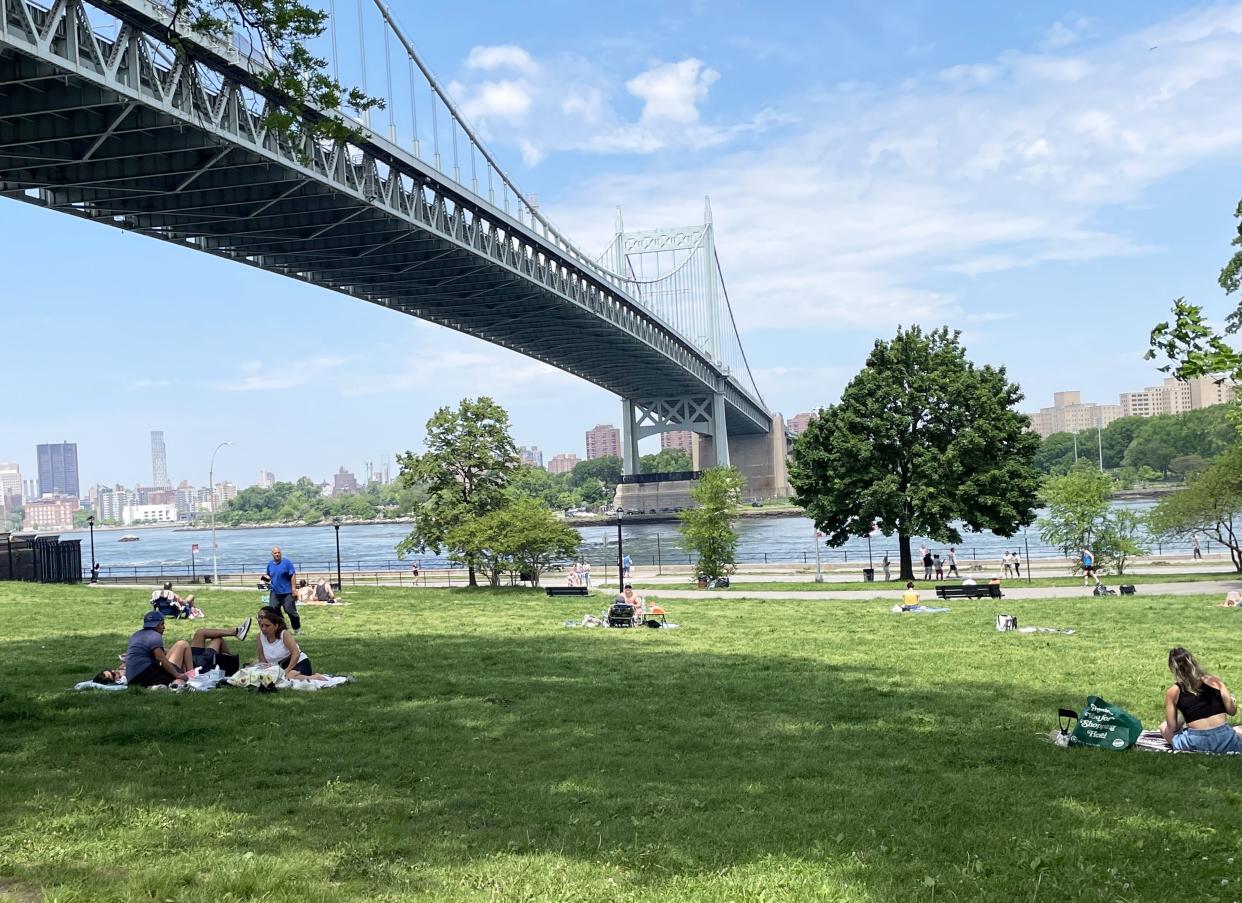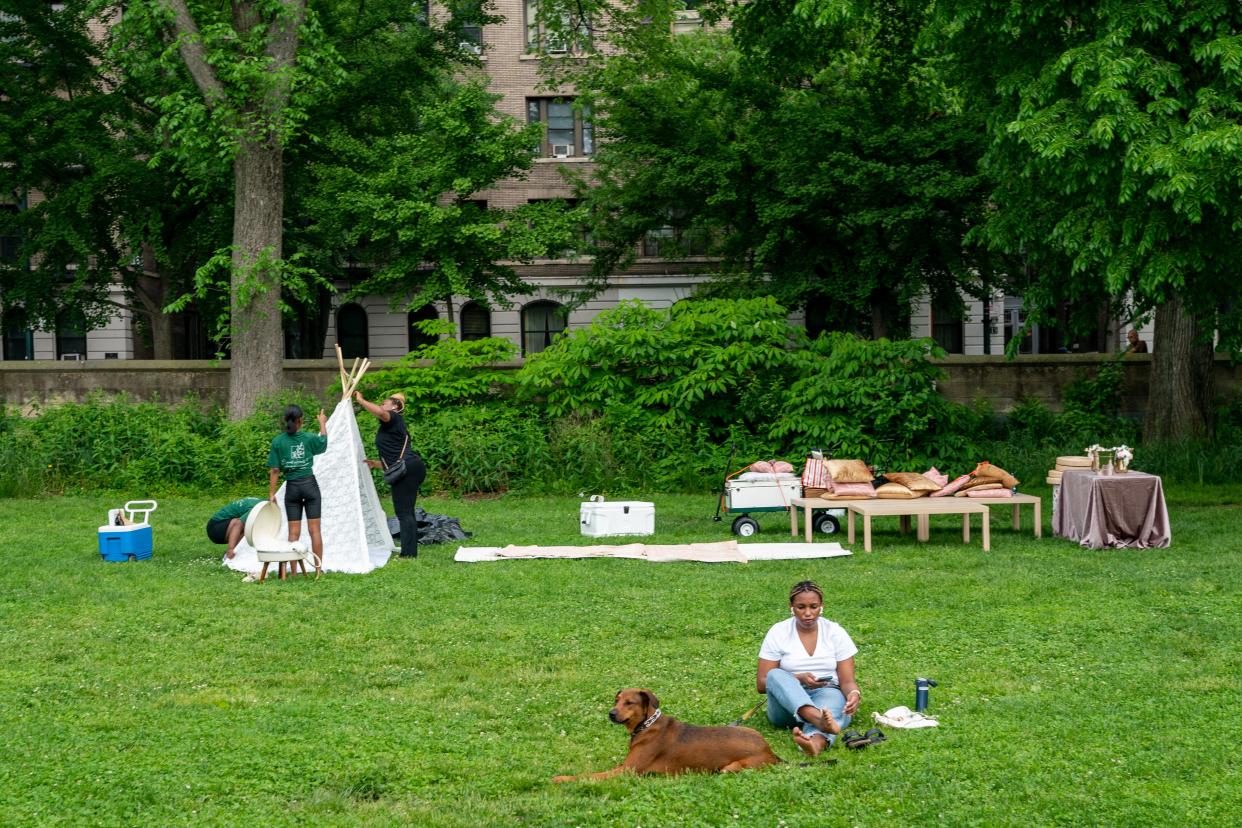Cooler weather ahead for New York City after scorcher of a weekend
After two days of scorchers, cooler weather is ahead for the city.
The unseasonably hot temperatures that kept the city sweaty Saturday and Sunday are expected to chill out Monday with a high of 76 degrees and a low of 60, according to the Weather Channel.
It would be a dramatic drop from a weekend that prompted the National Weather Service to issue a heat advisory and warn of dangerous air quality Saturday — the city’s first day in May to reach 90 degrees since 2018.
One person died at the finish line of the Brooklyn Half Marathon at Coney Island on Saturday, while 15 other runners were hospitalized as the humidity soared to 74%.

A jogger runs past a person drawing in Central Park on Sunday. (David Dee Delgado/)
Sunday brought similar heat to the city, posing challenges for those whose jobs require them to be outside.
A 23-year-old Amazon delivery driver told the Daily News the back of her van felt “like an oven.”
“I’m actually really cooked and I’m trying to finish fast,” said Bonnie, who declined to give her last name. “What they’re really worried about is who’s gonna get [deliveries] to the homes first. No matter what. If you’re the slowest, I don’t think they’ll continue to have routes. ... That’s why I’m over here trying to kill myself. I just want them to understand that we’re already doing physical things and we’re sweating naturally, and with the heat it’s like 10 times worse.”
Flushing, Queens, resident Dennis Krolikowski, 37, resisted the urge to use his air conditioner, saying it would “crank up my energy bill for like two days, so it’s not even worth it.”

Dennis Krolikowski
Luckily for those feeling the burn, it’s too early in the year for temperatures to remain so high for long, meteorologist Bill Evans told The News on Sunday.
“Our weather right now is traveling from west to east across the country, so it’s not really settled in as far as our late spring, summertime weather pattern,” said Evans, the chief meteorologist for the WLNG Sag Harbor radio station on Long Island.
“We’ll get relief from this as we head into the first part of next week.”
The hot weather pounded cities throughout the Northeast. Philadelphia hit 95 on Saturday to match a previous high mark for the city set in 1934, while Washington, D.C., reached 92 to tie a record set in 1966.

People sunbathing in Astoria Park on Sunday.
The surge of hot weather may not officially go down as a heat wave in New York because three consecutive days of 90-degree temperatures are required to meet that threshold, Evans noted.
Still, the same precautions applied: Drink water and limit dehydrating beverages like alcohol and coffee, he advised.
“Water is the body’s oil reserve. It’s like oil in a car,” Evans, a former weatherman for WABC-TV in Manhattan, told The News.
“A lot of dehydrations occur in the first heat wave of spring or summer and hospitals get inundated with people who are dehydrated. It’s because they’ve been kind of stagnant and haven’t been exercising. You get a warm day, you overexercise, you sweat a lot ... and you get dehydrated.”
Many New Yorkers celebrated the arrival of warm weather with outdoor trips, including to local parks. Only “a handful” of heat-related incidents required emergency medical responses Saturday, according to the FDNY.

A group set up a picnic site in Central Park on Sunday. (David Dee Delgado/)
Evans encourages people to wear sunscreen and be aware of air-conditioned public places such as senior centers, malls or theaters that they can access if the heat sparks electrical brownouts.
“You also want to limit, sometimes, your exposure outside,” Evans said. “You just haven’t had enough time to really get out into those hot weather days. That will avoid heat stress and avoid heatstroke, which can happen also.”
“The highest period of heat during the day is from about 11 in the morning to 3 in the afternoon,” he added. “Keep the air moving [with air conditioning], fans and all that stuff.”
Still, some like it hot.
“I like to sweat. I’m from Greece. I don’t care. I love to sweat,” Steve Betrakus, 60, of Bayside, Queens, told The News.
